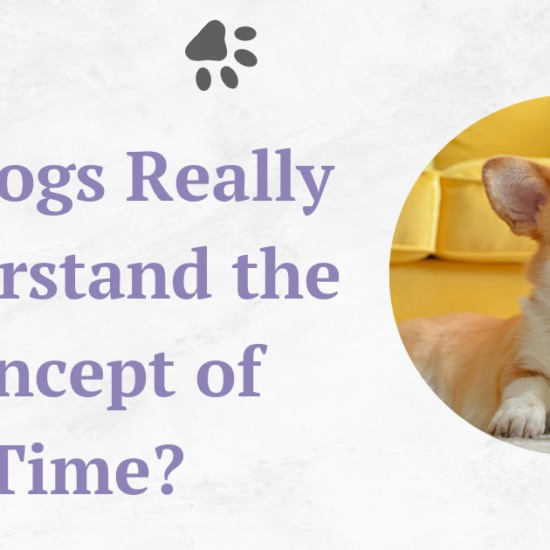Dogs are dubbed “man’s best friend” for a reason. Their undying loyalty, unconditional affection, and exceptional social abilities make them the ideal human companions. Some dog breeds stand out in the vast world of dog breeds for their sociability and willingness to connect with people and other animals.
Table of Contents
Introduction
In this detailed study, we will look at the most sociable dog breeds, throwing light on their traits, temperaments, and how they can improve our lives.
Importance of Dog Sociability
Canines’ sociability is a key characteristic that characterizes their capacity to interact constructively with humans, other canines, and other animals. A friendly dog displays friendliness, approachability, and the ability to flourish in a variety of social situations. This priceless trait is widely valued in pets because it not only enhances our lives but also promotes harmonious coexistence within our families and among other pets. Sociable dogs are more likely to exhibit positive behaviors, making them not only easier to teach but also more easily integrated into our daily lives.
Sociability is at the heart of what makes dogs such wonderful companions. This social ability is visible in the way dogs approach their owners, tails wagging and eyes twinkling with adoration, eagerly seeking attention and creating profound emotional ties. They have an extraordinary ability to read and respond to human emotions, assisting in times of joy, tension, or despair. A friendly dog can turn a house into a home, providing warmth and joy to every member of the family.
Furthermore, a sociable dog’s versatility is shown in how they interact with other animals and canines. They have an easy time making friends and creating an environment of camaraderie, playfulness, and social enrichment. In a world where dogs are frequently referred to as “man’s best friend,” this ability to create bonds extends well beyond their human companions, resonating in the peaceful coexistence of pets of diverse types.
Sociability is not only a desirable trait, but it also adds to a well-rounded and well-behaved pet. Sociable dogs are not only easier to train, but they are also less prone to destructive or violent behavior. Their sociable nature makes them more sensitive to learning and reacting to commands, allowing for the establishment of a mutually rewarding relationship between pet and owner.
Top 10 Friendly Dog Breeds
The Golden Retriever

In the dog world, the Golden Retriever is a true symbol of sociability. They are commonly described as one of the most sociable dog breeds due to their affable and friendly demeanor. These dogs make excellent family pets, frequently developing deep ties with all members of the household, including youngsters. Their constant wagging tails and bright, expressive eyes demonstrate their fondness for human interaction.
Because of their capacity to comfort and connect with individuals in need, Golden Retrievers excel in social situations and are frequently regarded as therapy dogs. Their enthusiasm to please makes them ideal training and dog sports companions, adding to their appeal as friendly pets.
The Labrador Retriever

Labrador Retrievers are another breed known for their friendliness. They are well-known for their cheerful demeanor and energetic nature, making them popular with both families and individuals. Labradors thrive on engagement and company, whether with human family members or other dogs.
Labradors’ flexibility goes outside the home, as they are frequently used as guiding dogs, search and rescue dogs, and therapy dogs. Their sociability, paired with their intelligence and trainability, makes them a valuable member of society.
Poodle
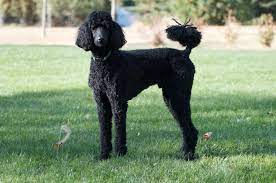
Poodles are frequently associated with elegance and grace, yet their sociability should not be underestimated. These intelligent and highly trainable canines have a good sense of their surroundings and are superb character evaluators. They are recognized for being good character evaluators, taking time to warm up to newcomers but forming deep ties once they do.
Poodles are frequently seen participating in dog sports such as obedience, agility, and even canine dancing, demonstrating their friendly and flexible temperament. They are a breed that thrives on human interaction and affection.
The Pitbull

Bulldogs may not be the first breed that springs to mind when considering friendly dog breeds, but they have their own charm and sociability. They are well-known for being affectionate and laidback. Bulldogs build deep bonds with their families and are frequently referred to as “lap dogs” because they enjoy cuddles and intimate human touch.
Bulldogs are ideal for people who desire a gregarious companion yet live a more relaxed lifestyle. Because of their placid demeanor and desire for human interaction, they make wonderful indoor pets and are ideal for anyone looking for a lower-energy breed.
The Beagle

Beagles are another friendly breed that thrives on human interaction. These dogs are well-known for being friendly and approachable. Their need for social engagement is not limited to their human families; they also get along well with other canines and animals.
Beagles are recognized for their inquisitive and energetic nature, which makes them ideal companions for active families and individuals. Their social personality, combined with their high activity levels, makes them ideal for outdoor adventures and exploration.
Australian Sheepdog
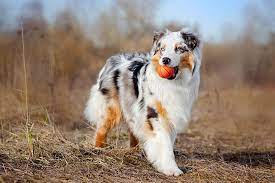
The Australian Shepherd is a breed that is both intelligent and social. They are well-known for their herding instincts, but they are also extremely gregarious animals. These dogs enjoy human interaction and being a part of a family. They are commonly referred to as “velcro dogs” due to their proclivity to cling close to their owners.
Australian Shepherds are not only amiable but also highly versatile, making them ideal for a variety of activities ranging from hiking to agility training. Their devotion and desire to please others enhance their sociability, making them great friends in a variety of circumstances.
The German Boxer

German Boxers are noted for their vivacity and friendliness. These dogs are excellent family companions due to their sociability and protective tendencies. They are well-known for their lively and friendly attitude toward their human family members, making them ideal companions for busy households.
German Boxers are also recognized for their social relationships with other dogs and animals, which makes them an excellent choice for individuals who have many pets. Their lively disposition lends itself nicely to training and many canine sports, boosting their sociability.
The Dachshund

Dachshunds are petite in height but great at sociability. These adorable tiny dogs create strong ties with their owners and are well-known for their friendly personalities. They enjoy socializing with people of all ages and enjoy being a part of the family.
Dachshunds have a strong sense of loyalty and a protective temperament, making them excellent watchdogs. Despite their size, they are brave and gregarious dogs who enjoy being the focus of attention.
Shih Tzu

Shih Tzus are known for being gregarious and friendly. These little canines are well-known for their friendly personalities and willingness to be near people. They thrive on social interaction and are frequently regarded as excellent companions for seniors and families.
Shih Tzus may need some grooming, but their friendly and agreeable disposition makes them an excellent addition to any home. Their pleasant demeanor and adaptability have made them popular pets for many years.
The American Boxer

Another breed recognized for its friendliness is the American Boxer. These dogs frequently stand out for having playful and vivacious personalities, which makes them excellent companions for families and people who are active. Boxers are highly social animals who appreciate being a part of a family.
Boxers are an excellent choice for anyone looking for a sociable and well-behaved companion because they are amiable, versatile, and easy to train. Their loyalty and caring temperament make them treasured family members.
Impact of Breeding and Training
Sociability in dogs is not entirely determined by breed. While certain dog breeds are more friendly than others, it’s important to remember that each dog is an individual with its own personality. The importance of breeding, upbringing, and training in forming a dog’s behavior cannot be overstated. Socialization and training, regardless of breed, are critical to fostering a dog’s sociability.
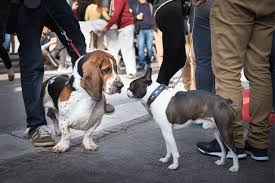
Socialization and Early Exposure: Early socialization is the cornerstone of a sociable dog. Dogs must be exposed to a diverse range of people, animals, settings, and experiences during a vital formative stage of their puppyhood. Early exposure helps kids become well-adjusted and less prone to react fearfully or aggressively in strange settings. Puppies who are exposed to a variety of stimuli grow up to be self-assured and gregarious adults.

Consistent Training: Training is an extremely effective method for improving sociability. Proper training methods assist dogs in understanding expectations, responding to commands, and developing beneficial behaviors. It is critical to remember that consistency is essential. Dogs thrive on structure and repetition, and consistent training lays the groundwork for social behavior.

Reward Based Training: Positive rewards training strategies work especially effectively with sociable dogs. Rewarding desired behaviors with treats, praise, and affection encourages these behaviors to be repeated. This method builds trust and collaboration between the dog and its owner, resulting in a strong attachment that reinforces friendliness.
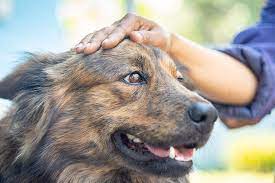
Behavioral Training: Dogs may exhibit behavioral disorders such as excessive barking, jumping on humans, or hostility in some circumstances. Professional assistance from a trained dog trainer or behaviorist can be quite beneficial in resolving these specific issues. These professionals use approaches that are adapted to the needs of each particular dog, assisting them in overcoming obstacles and becoming more friendly.
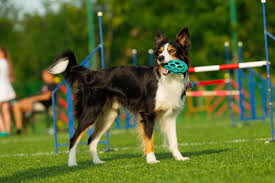
Exercise and Mental Stimulation: Because sociable dogs have high energy levels, they require regular exercise and mental stimulation. Physical and cerebral stimulation is provided by activities such as walks, games, and puzzle toys. Exercise not only helps them maintain their health, but it also reduces anxiety and restlessness, which improves their sociability.

Patience and Time: Training a friendly dog takes time and patience. Dogs learn at their own rate, and consistency is essential for obtaining desired habits. Celebrate minor triumphs along the way, and keep in mind that the journey of training and socialization is ongoing as dogs learn and adapt throughout their lives.
Dog Breeds That Are Sociable In Specific Roles
Beyond being cherished family pets, sociable dogs perform crucial roles in different parts of society, improving the lives of individuals and benefiting the community as a whole.
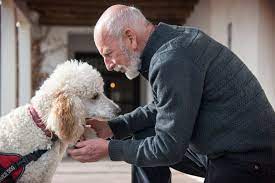
Therapy Dogs: Therapy dogs are taught to provide comfort and emotional support to people in need. Their presence gives comfort and relief in hospitals, nursing homes, schools, and disaster-stricken places. Due to their calm, pleasant, and easygoing nature, breeds such as Golden Retrievers, Labradors, and Poodles excel at this job. Their social demeanor aids in stress reduction and recovery.
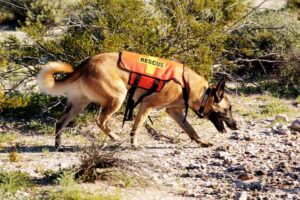
Search and Rescue Dogs: Search and rescue dogs are critical in locating missing people, especially in difficult and dangerous situations. These dogs demand a high level of friendliness as well as hard training. German Shepherds, Border Collies, and Labradors are selected for their sociability and aptitude to work well with their handlers and other team members. Their cooperative nature and deep human relationships make them invaluable in search and rescue efforts.
Note: There might be affiliate links mentioned here. We may receive a commission if you purchase a product through an affiliate link. There is no additional charge for you. Please do your own research before making any online purchases.
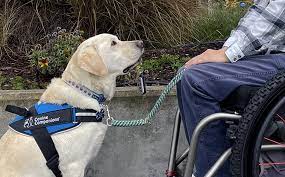
Assistance Dogs: Guide dogs for the visually impaired, hearing dogs for the deaf, and service dogs for people with disabilities all require a high level of sociability. They must communicate well with their human partners and execute commands precisely.
Breeds such Labrador Retrievers, Golden Retrievers, and German Shepherds are preferred because of their social and trainable temperaments, making them suitable for these important responsibilities that improve the freedom and quality of life of people with disabilities.
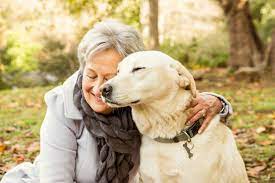
Canine Friends for the Elderly: Canine friends for the elderly play an important role in giving emotional support as well as assistance with everyday tasks. These dogs must be friendly and adaptable to a variety of living settings, providing company as well as a sense of security. Shih Tzus, Dachshunds, and Beagles are popular choices for this purpose because of their amiable and adaptive disposition, which is well-suited to the special needs of senior folks.
Suggestions for Socialization of Dogs
To guarantee that friendly dog breeds are well-behaved and receptive to orders, training is vital. Training is essential, whether you want to welcome a new social dog into your home or enhance the behavior of your current pet. Here are several important factors in socializing dogs:
Early Socialization: From an early age, socialize your dog by introducing them to a variety of people, situations, and animals. This assists kids in being well-adjusted and less prone to showing fear or hostility in unexpected environments.
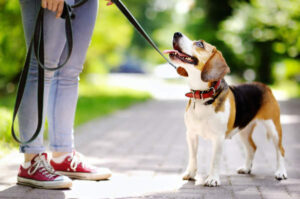
Obedience Training: Basic commands and excellent manners must be taught to your dog through obedience training. With friendly dogs, positive reinforcement strategies such as cookies and praise work effectively. In training, consistency is essential.
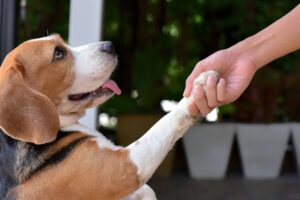
Positive Rewards: With friendly dog breeds, reward-based training approaches are quite effective. Treats, praise, and affection should be used to reward positive conduct. This positive reward motivates your dog to perform the desired behavior again and again.
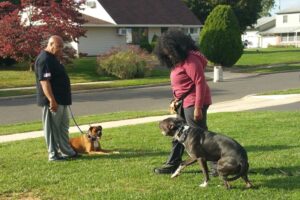
Behavioral Training: Seek professional advice from a certified dog trainer if your friendly dog develops any behavioral concerns, such as excessive barking or leaping on people. They can assist in addressing specific issues and providing specialized solutions.

Exercise and Mental Stimulation: Due to their high energy levels, sociable breeds require both physical exercise and mental stimulation. Regular walks, playtime, and puzzle toys can all contribute to your dog’s happiness and well-being.

Establish Consistent Rules and Boundaries: For your dog to follow, establish consistent rules and boundaries. This gives your dog a sense of structure and helps them grasp what is expected of them.

Patience and Time: It takes time and patience to train a social dog. Maintain consistency in your efforts, and keep in mind that each dog learns at their own speed. Small triumphs along the way should be celebrated.
FAQs
What exactly is sociability in dogs?
The ability of dogs to interact favorably with humans, other dogs, and other animals is referred to as sociability. It includes friendliness, approachability, and the ability to thrive in a variety of social situations.
Why is dog sociability important?
Dog sociability enriches our lives and promotes peaceful cohabitation within households and among different pets. Sociable dogs exhibit positive behaviors and are easy to train, allowing them to be easily incorporated into daily life.
What effect do friendly dogs have on our emotions and well-being?
Dogs with sociability have an extraordinary capacity to read and respond to human emotions. They give us support, comfort, and joy when we are happy, stressed, or unhappy, making our lives more emotionally meaningful.
Do social dogs get along with other animals?
Yes, friendly dogs build ties and interact well with other animals, including other dogs and pets of different species, fostering a happy atmosphere.
Can socialization and training aid in the socialization of less sociable breeds?
Without a doubt, socialization and training play an important role in developing a dog’s behavior. Even less sociable breeds can become well-adjusted and sociable dogs with early exposure and regular training.
Which dog breeds are the most social?
The Golden Retriever, Labrador Retriever, Poodle, Bulldog, Beagle, Australian Shepherd, Boxer, Dachshund, Shih Tzu, and Boxer are among the most friendly dog breeds. These breeds are well-known for being amiable and versatile.
What are some of the social roles that dogs perform in society?
Therapy dogs, search and rescue dogs, assistance dogs (e.g., guide dogs, hearing dogs, service dogs), and companions for the elderly are all examples of sociable dogs in action. Their friendliness improves people’s lives and enriches the community.
How can I teach my outgoing dog to be obedient?
Early socialization, obedience training, positive reinforcement, and the establishment of regular norms and boundaries are all part of training a friendly dog. When dealing with certain behavioral issues, it is best to seek expert help.
What are the difficulties in teaching sociable dogs?
Because each dog learns at their own pace, training a friendly dog may require patience and time. Training success requires consistency and positive reinforcement.
What are the long-term effects of sociable dogs on our lives and society?
Sociable dogs form long-lasting friendships, improve our emotional well-being, and play critical roles in many parts of society. They continue to demonstrate why they are renowned as “man’s best friend” and have a good impact on the planet.
Conclusion
Sociable dogs have an exceptional ability to interact with people, improving our lives with their devotion, loyalty, and welcoming demeanor. These dogs are available in a variety of breeds and sizes, providing a diverse range of possibilities for people looking for a social canine companion.
Sociable dogs improve the lives of individuals and society as a whole, from family pets to working canines in numerous critical jobs. Their undying love, devotion, and social abilities form lifelong bonds, reminding us why dogs truly earn the moniker “man’s best friend.”











